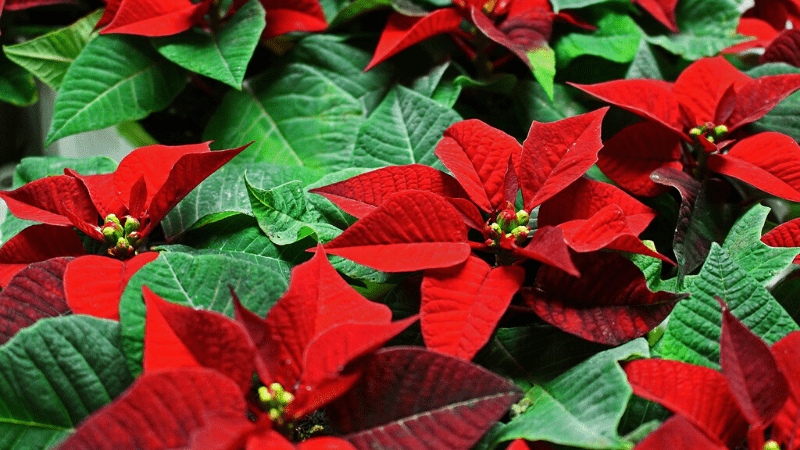Many of us have heard that poinsettias are poisonous to dogs and cats. Truth be told, these popular holiday plants are only slightly toxic to animals. That being said, there are other popular winter plants that are considered dangerous to pets. Read on for more information about plant toxicities in cats and dogs.
*Allow 5 minutes to read the full post.
Poinsettias
Poinsettias that have been treated with pesticides are another matter entirely. Pesticides can cause pets to become mildly to severely ill, depending on the chemical. If you have a poinsettia or other plant that has been treated, keep it out of reach of your pets at all times.
If you believe your cat or dog has consumed a poinsettia, it is important to monitor for symptoms and report any changes in health to your veterinarian. Regardless of the low toxicity of poinsettias, it is best to keep them away from your pets.
Mistletoe
Mistletoe and holly also contain other substances (eg. toxalbumin) that are poisonous to pets. If eaten, these plants could cause a dramatic drop in blood pressure, difficulty breathing, GI upset, and hallucinations. Pets that consume a large amount of mistletoe or holly may experience seizures and/or death.
Always keep the leaves and berries of mistletoe and holly out of reach of all pets.
Christmas Trees 🎄
Live Christmas trees are a tradition for many families during the holiday season. It’s important to supervise pets around the Christmas tree for several reasons. Fir trees produce oils that can irritate a pet’s mouth and stomach. Tree needles can irritate a pet’s GI system and even cause GI obstructions or lesions. The water in the Christmas tree base can be contaminated with bacteria, mold or fertilizer, all of which will make a pet sick. And don’t forget about the lights and ornaments — pets can cut themselves on glass shards or pointy ends of broken ornaments, and the wires of lights pose an electrical hazard to any pet that decides to chew on them. When you’re not around, it’s best to block your pet’s access to the Christmas tree.
Amaryllis
This gorgeous plant goes by many names (Amaryllis, Belladonna, St. Joseph Lily, Naked Lady) and is extremely poisonous to pets. Ingestion of an Amaryllis could cause vomiting, diarrhea, stomach pain, reduced appetite, lethargy, and tremors in a dog or cat.
Lilies & Daffodils 🌼
Daffodils are dangerous for cats and dogs, and the bulbs are the most toxic part of the plant. Consumption of even a small amount of a daffodil could cause a pet to go into kidney failure.
If your dog or cat ingests any of the plants mentioned in this article, call poison control or your veterinarian immediately. The phone number for the Pet Poison Helpline is 855-764-7661.






